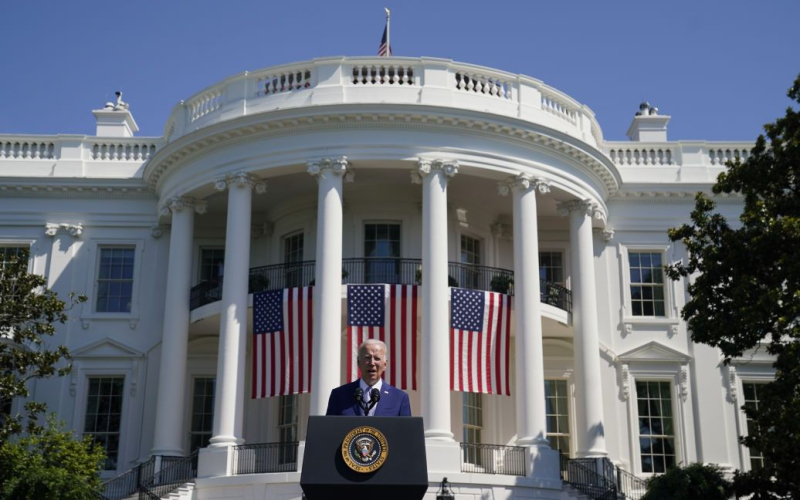
If China attacks Taiwan, the situation could quickly escalate into a global war on three fronts.
The United States is one step away from a world war that it may lose. Two of the world's three most strategically important regions have serious conflicts that require U.S. attention. If China decides to attack Taiwan, the situation could quickly escalate into a global war on three fronts, with the US directly or indirectly involved.
Foreign Policy writes about this.
“If China were to invade Taiwan, the United States would have a hard time repelling the attack while ensuring a flow of aid to Ukraine and Israel,” the article says.
As the author of the article writes, it is time to truly mobilize the United States, its defense and allies to combat what could become the global crisis of our time.
The worst-case scenario is an escalation of war in at least three major theaters of war, involving an understretched U.S. military alongside ill-equipped allies who are largely unable to defend themselves against large industrial nations. Waging this fight will require a level of national unity, mobilization of resources, and a willingness to sacrifice that Americans and their allies have not seen in generations.
“As Russia mobilizes for a long war in Ukraine, the temptation for China to make a move on Taiwan will grow. Beijing is already testing Washington in East Asia, knowing that the United States will have difficulty dealing with a third geopolitical crisis. If war does break out, the United States will find “that some very important factors are suddenly working against her,” the material says
If China attacks Taiwan, the United States will have a hard time repelling the attack while maintaining a flow of support from Ukraine and Israel.
The United States has fought multi-front wars before. But in past conflicts they were always able to outperform their opponents. However, this is no longer the case.
“The Chinese fleet already outnumbers the American fleet in terms of number of ships, and it is growing by an amount equivalent to the entire French Navy (about 130 ships, according to the French Navy Chief of Staff) annually.”
Another important point is money. In past conflicts, Washington could easily outspend its opponents. During World War II, the US government debt to GDP ratio nearly doubled, from 61% of GDP to 113%.
Today, the United States will enter into conflict with a debt already exceeding 100% of GDP. Assuming the economy grows at the same rate as during World War II, it is not unreasonable to expect that debt could rise to 200% of GDP or higher.
Global conflict will lead to other dangers. The United States' two rivals, Russia and Iran, are major oil producers. A recent report suggests that a prolonged closure of the Strait of Hormuz amid wider conflict in the Middle East could push oil prices above $100 a barrel, significantly increasing inflationary pressures.
China is the majority owner of US debt and a sustained sell-off by Beijing could push US bond yields higher and put further strain on the economy. It's reasonable to assume that Americans will face shortages of everything from electronics to building materials.
“The United States must strain every nerve to prepare for this scenario in hopes of containing conflict but ensuring that Americans are prepared for it if it happens. Effective preparation is the path to improved deterrence; steps to improve war readiness send a clear message to adversaries a signal that aggression is more risky for them than stability and peace,” writes the author of the publication.
The immediate priority for the United States should be to ensure that Ukraine, Israel, and Taiwan have the weapons they need to defend themselves.
This will not be possible unless the United States gets its defense industrial base in order. Since the start of Russia's full-scale war against Ukraine, overall US defense production has increased by only 10%.
The situation is so serious that Washington may have to invoke the Defense Production Act and begin converting some of its civilian industry to military purposes. Even then, the U.S. government may have to take draconian steps, including redirecting materials destined for the consumer economy, expanding manufacturing capacity, and revising environmental regulations that make it harder to produce military materials to “prepare the U.S. industrial base for mobilization.”
It is obvious that Washington will have to increase defense spending. To prepare for war without adding to the debt, Washington will have to cut spending on social programs that enjoy broad public support.
US allies will also have to step up in largely new ways. The war in Ukraine has prompted European NATO members, especially Germany, to take security more seriously. However, even now, less than a third of them are meeting their commitment to spend at least 2% of GDP on defense. Major Western European members have yet to fulfill a promise they made more than a year ago at the bloc's summit in Madrid.
“What is happening in Ukraine and Israel seemed incredible just a few years ago. The Americans and their allies must begin to put their affairs in order now, so as not to be unprepared for a global conflict if it happens,” the author of the article sums up.
Let us remind you that The Telegraph summed up the results of the meeting between Biden and Xi – what remained “behind the scenes”.
Related topics:
More news

